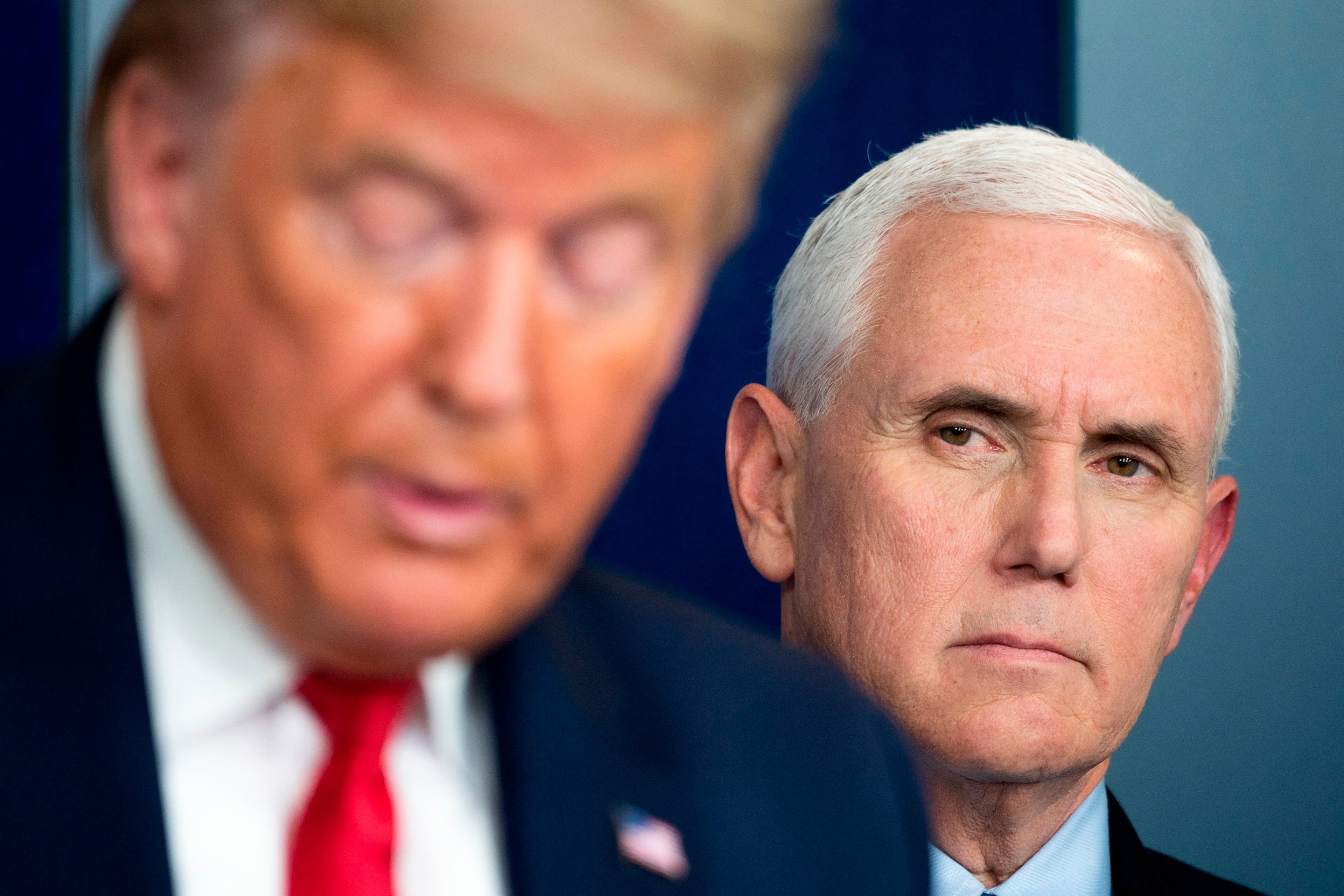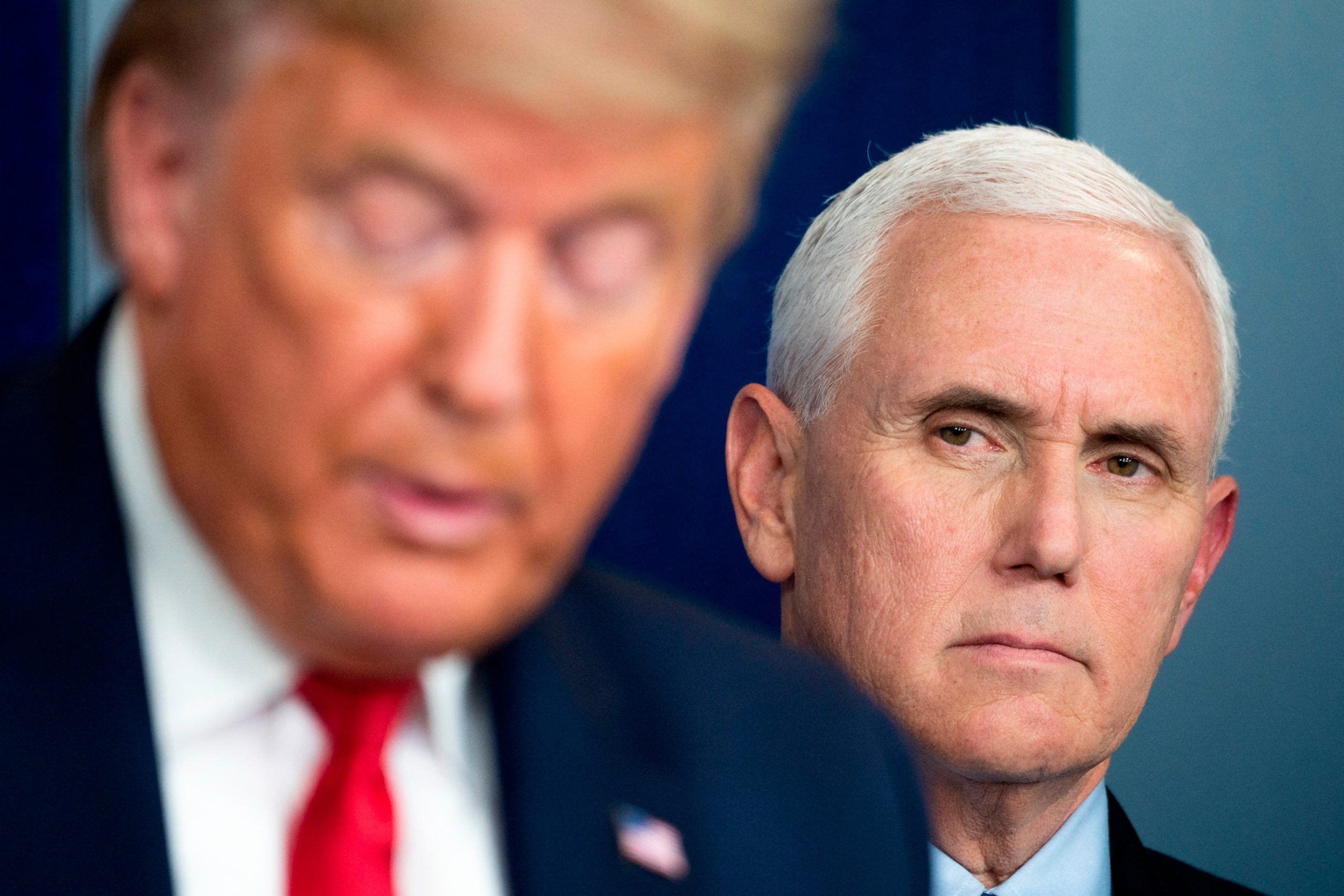Former Vice President Mike Pence said Friday he will not be endorsing his former boss Donald Trump in the 2024 general election.
Appearing on Fox News, Pence said he “cannot in good conscience” back Trump as there are “profound differences” between their views on various issues.
Pence, who unsuccessfully ran for the Republican nomination, declined to reveal who he plans to vote for in November but he said he would “never” vote for President Joe Biden.
“It should come as no surprise that I will not be endorsing Donald Trump this year,” Pence said after being asked by Fox News host Martha MacCallum.
Pence slammed Trump for pursuing an agenda that is “at odds with the conservative agenda” the two abided by during their administration.
“Look, I’m incredibly proud of the record of our administration,” Pence said. “It was a conservative record that made America more prosperous, more secure and saw conservatives appointed to our courts in a more peaceful world.”
“That being said, during my presidential campaign, I made it clear there were profound differences between me and President Trump on a range of issues, not just our difference on my constitutional duties that I exercised on Jan. 6,” Pence said.

Vice President Mike Pence listens as President Donald Trump speaks during a press briefing at the White House in Washington, DC, on March 26, 2020.
Jim Watson/AFP via Getty Images, FILE
Pence said Trump’s stance on the national deficit, his position on abortion and most recently his reversal on the TikTok ban are among his reasons for not endorsing his former running mate, in addition to what unfolded on Jan. 6, 2021. Trump’s pressure on Pence to reject the 2020 election results (which Pence said endangered his family’s life on Jan. 6) prompted a rift in their relationship, and prompted Pence to argue on the campaign trial that his efforts to overturn his election loss should be disqualifying.
Asked who he plans to vote for in the general election, Pence said, “Like most Americans, I’m going to keep my vote to myself.”
“I would never vote for Joe Biden,” Pence said when asked if he would vote for Biden. “How I vote when that curtain closes, that will be for me.”
The former vice president dodged the question of whether he’s looking to support a third-party candidate.
“What I can tell you is that where I’m going to spend any energy is on making sure that my fellow Republicans, independents and many Democrats around the country know that it is a commitment to a limited government in the Constitution, a commitment to a strong defense and American leadership in the world, a commitment to traditional values,” he said.
Later on in the interview, when asked if he’d run as third-party candidate, Pence more clearly dismissed that idea, saying, “I’m a Republican.”
Pence acknowledged the fact that Republican primary voters have made their choice clear, and said he plans to spend the rest of the year pushing for “what we should be for.”
“Republican primary voters have made it clear, Martha, who they’re for in this election,” Pence said. “What I’m going to spend the rest of the year is talking about what we should be for – the broad mainstream conservative agenda that has defined our party and always made America strong and prosperous and free.”
On the campaign trail, Pence never directly ruled out voting for Trump in 2024 but repeatedly said, “I don’t think I’ll have to.”
He argued Republicans would select a “new standard bearer” before Trump this week secured enough delegates to presumptively be the GOP nominee.
After warning against what he called the “siren song of populism,” Pence’s political advocacy organization, Advancing American Freedom, announced plans last month to invest $20 million in a program intended to uphold conservatism as “bigger than any one moment, election, or person” — in a not so thinly-veiled swipe against Trump and CPAC.
After Pence suspended his campaign in October last year, Trump urged his former running mate to endorse him, saying he “made him vice president” and that he “had a successful presidency.”
Trump also complained about “disloyalty” in politics, a topic Trump had frequently mentioned earlier this election cycle while attacking former 2024 rivals like Floria Gov. Ron DeSantis and former South Carolina Gov. Nikki Haley.
Former Vice President Mike Pence has made headlines recently for his decision not to endorse former President Donald Trump for the 2024 presidential election. This move has sparked speculation and debate within the Republican Party about the future of the party and its leadership.
Pence, who served as Vice President under Trump from 2017 to 2021, has been a loyal supporter of the former President throughout his time in office. However, in a recent speech at the Hillsdale College National Leadership Seminar, Pence made it clear that he will not be endorsing any candidate for the 2024 election at this time.
This decision has raised questions about Pence’s relationship with Trump and his own political ambitions. Some see Pence’s refusal to endorse Trump as a sign of a rift between the two men, while others believe that Pence is positioning himself for a potential presidential run in 2024.
In his speech at Hillsdale College, Pence emphasized the importance of focusing on the future and the need for Republicans to come together to defeat the Democrats in the next election. He also spoke about the importance of upholding conservative values and principles, which he believes are essential for the future of the party.
Pence’s decision not to endorse Trump has been met with mixed reactions from Republicans. Some see it as a bold move that shows Pence’s independence and willingness to stand up to Trump, while others view it as a betrayal of the former President and his supporters.
Regardless of how one interprets Pence’s decision, it is clear that it has added a new dynamic to the upcoming 2024 election. With Trump hinting at a potential run for President and other Republican candidates considering their own bids, the race for the Republican nomination is shaping up to be a competitive and contentious one.
As the Republican Party grapples with its future direction and leadership, Pence’s refusal to endorse Trump serves as a reminder of the divisions within the party and the challenges that lie ahead. Only time will tell how this decision will impact Pence’s political career and the broader landscape of American politics.



